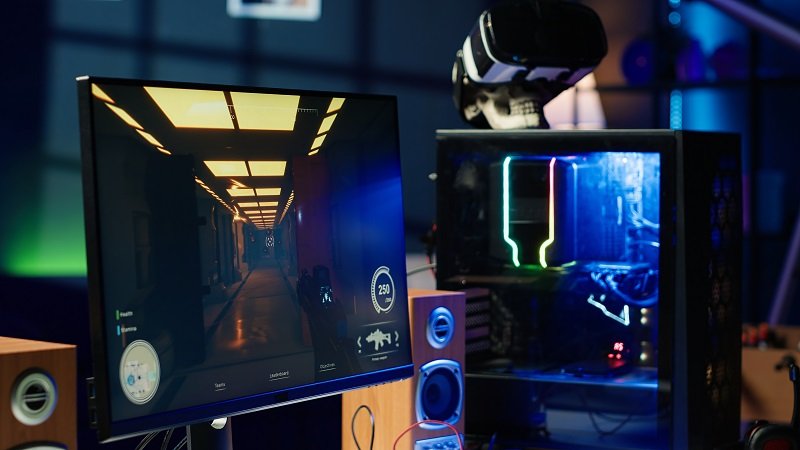Navigating Aging: The Best Tools and Devices for Enhancing the Quality of Life for the Elderly As people age, they gradually lose their physical independence due to diseases that come with age. If these diseases are accompanied by dementia, it worsens their condition further and makes them depend on others for their daily tasks. However, recent advancements in technology have made seniors’ lives easier than ever before.
Various tools and devices are now available that can help seniors navigate the aging process more smoothly and improve their quality of life. Let’s discuss various tools designed to assist seniors and how they can improve their lives.
What are Assistive Devices?
Assistive devices can be defined as equipment or tools that are specifically made to assist seniors with dementia or some other illnesses. These assistive devices for elderly help them to carry out their tasks independently. There are various types of assistive devices available, and the device your loved one needs will depend on their specific requirements and limitations.
These devices can help the elderly to maintain independence and safety while enhancing their quality of life. With these tools, daily tasks become more manageable and allow seniors to enjoy their daily activities without feeling restricted by physical illnesses.
Types of Assistive Devices for the Elderly
Here are some of the senior assistive devices that older people can utilize to make their lives easier.
Devices Enhancing Communication
Maintaining social connections is crucial for the elderly to bring down feelings of loneliness. Communication aids such as adaptive mobile devices help seniors maintain their social relationships and reduce feelings of isolation.
People with speech impairments can also use devices that use symbols or pictures to generate messages, making communication easier. There are a variety of devices like text-to-speech apps or amplified phones to help seniors communicate with their families or friends.
Daily Living Devices
Daily living assistive devices can enhance the independence of seniors to a great extent. As people with dementia always struggle to perform daily tasks, these tools are of great use.
There are memory aids for elderly, like medication management devices, that help people remember their medication time. These devices remind the seniors which medications have to be taken and at what time. Besides medication management devices, kitchen tools can also make food preparation more manageable.
Grabbers and reachers are also valuable tools for daily living. These tools can be used by older people who find it difficult to bend down and have limited mobility. They provide a convenient way to grasp things or pick up fallen things without bending excessively.
Vision Devices
Vision aid devices like magnifiers or talking watches are invaluable for seniors with visual impairments. Magnifiers can be used to enlarge objects or texts to make the seniors read and see easily. Talking watches can be used to keep track of time as they provide audible time announcements.
Talking clocks are also available, and they can be placed on a table and state time at regular intervals. These helpful tools for elderly help them to overcome the difficulties that come with vision loss.
Devices for Boosting Mobility
Mobility becomes a major issue with aging. It is very challenging for the seniors to move around on their own. There are various tools to help seniors maintain their mobility. Seniors who are mobile to a great extent can use canes or walking sticks for support and stability. This improves their balance and prevents falls.
For those who require a little more support, there are walkers and rollators available in different designs and features. If seniors are unable to move and have serious health issues, wheelchairs can help them overcome mobility challenges.
Approaching a healthcare professional or mobility specialist can help gain valuable guidance in choosing the most appropriate mobility device for the senior.
Devices for Better Hearing
Hearing ability tends to reduce with age, but it can be greatly enhanced with the help of senior assistive devices. Devices such as hearing aids can be worn behind the ear to amplify sound. These small electronic devices can be customized to meet the senior’s specific requirements and hearing profile.
Apart from hearing aids, there are also other it is like personal sound amplifiers or assistive listening It is . Personal sound amplifiers can be used by seniors with mild to moderate hearing loss and are less costly than hearing aids. Assistive listening devices capture sound and deliver it directly to the seniors’ ears to reduce the impact of background noise.
The Benefits of Assistive Devices for Seniors’ Health and Well-being
These It is are very useful for seniors with dementia or other diseases as they help them live better lives and make a positive difference in their lives. These tools range from memory aids to mobility aids and address the requirements of the elderly.
These adaptive It is for the elderly not only improve their lives but also give them a sense of freedom to carry out their activities. Along with physical aid, these It is also contribute to their mental well-being.
Incorporating these tools into the daily routines of older people also gives the family members time to unwind. They do not have to worry about the patient when they have these assistive tools. It is, therefore, relaxing for the patients as well as the families.
Conclusion
Seniors can easily incorporate these tools into their daily lives as they are easy to operate. The sense of fulfillment that seniors experience when they perform their daily tasks adds to the mental health of the seniors and helps them deal with dementia. Therefore, if your loved one is going through dementia or any illness, introducing assistive It is for elderly can be of great help. See More












